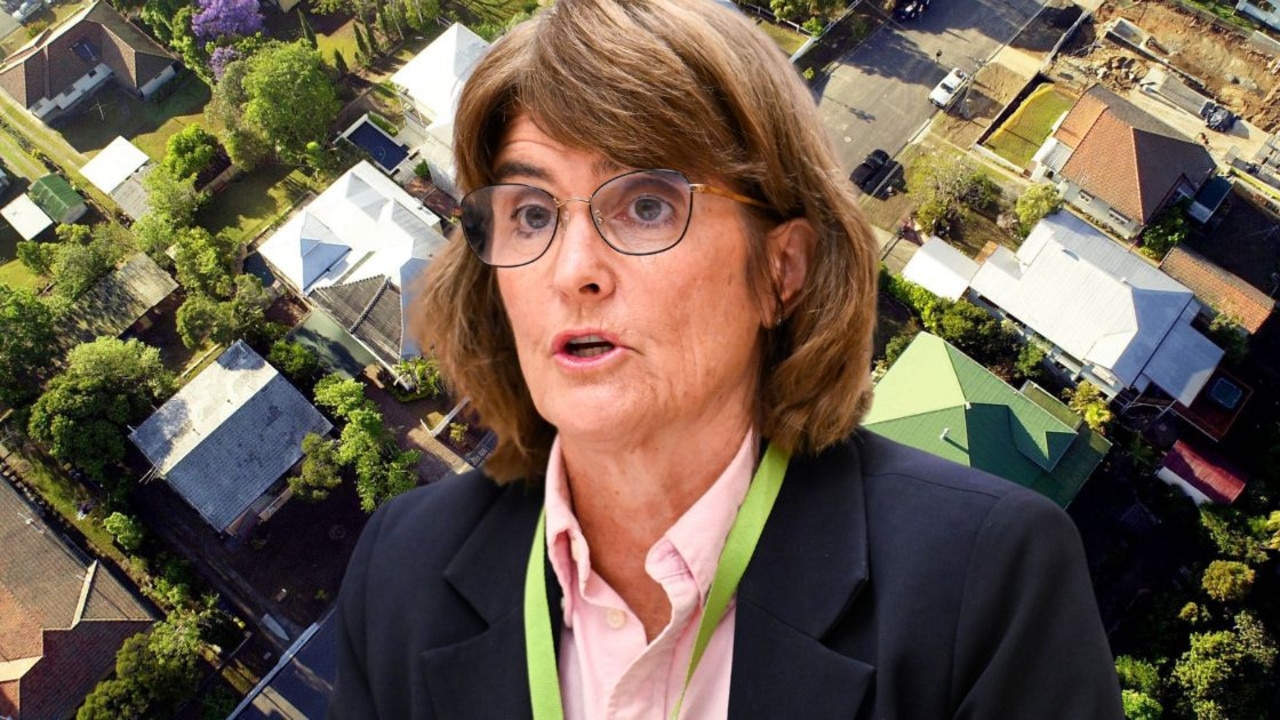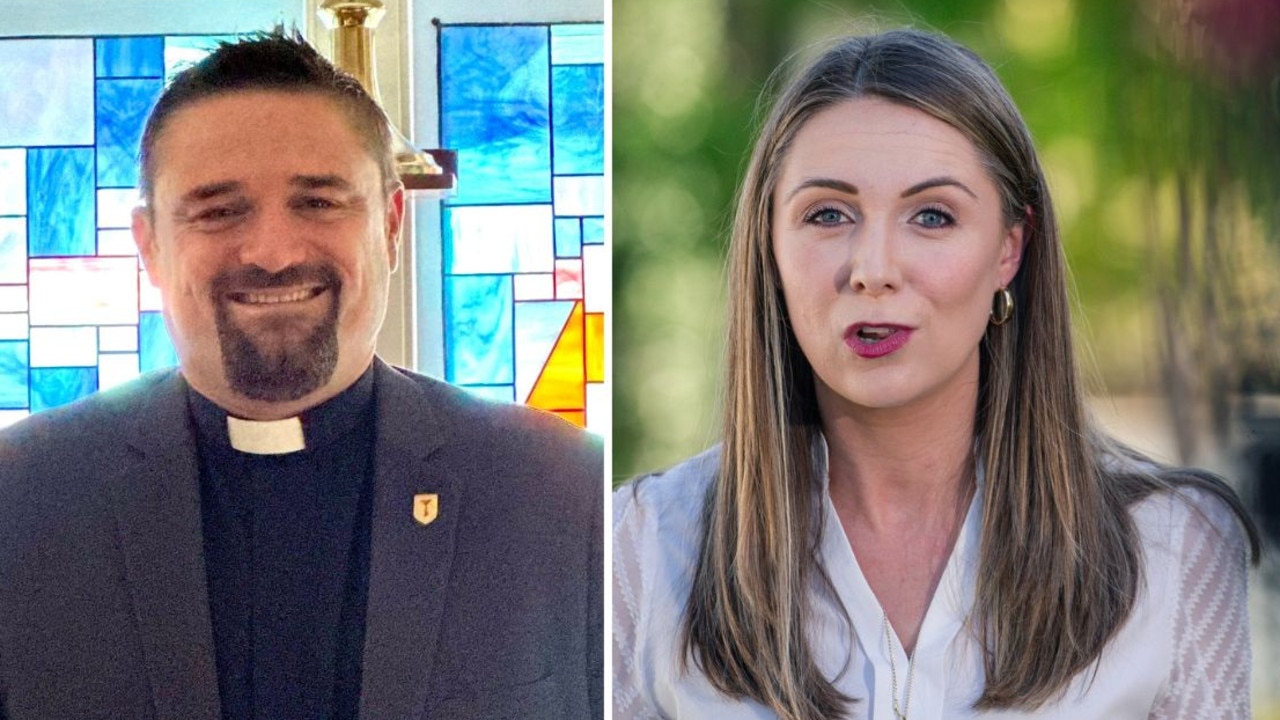Qld Health whistleblower still in the dark after claim ‘settled’
A former Queensland Health lawyer who raised suspicions of corrupt conduct is still in the dark after five years, despite the case being settled.
CM Insight
Don't miss out on the headlines from CM Insight. Followed categories will be added to My News.
A solicitor who raised “suspected corrupt conduct” allegations that Parliament was told involved Queensland Health director-general Shaun Drummond – who resigned this week – said the CCC has not properly investigated his public interest disclosure.
Drummond has been cleared of any wrongdoing.
“I’ve waited five years and have not seen any letter of outcomes which is a legal requirement of the PID Act,” said Alex Stewart, who was a lawyer at Queensland Health when he discovered what he believed was the improper use of public funds.
Stewart still works as a lawyer and is also director of the Centre for Privacy, Accountability and Transparency, a network of whistleblowers and lawyers.
He paints a gloomy picture of attacks on whistleblowers in government departments and government-owned corporations.
In his submission to the Wilson inquiry he said whistleblowers regularly faced unlawful reprisals, and that Queensland was ruled by a “game-of-mates tribalism” that involved “personal assassinations”, cover-ups and bullying.
The Crime and Corruption Commission, too, was lethargic in responding to public interest disclosures, he told Alan Wilson, the retired judge conducting the inquiry.
Stewart told me the integrity system was at the point of collapse.
He said he first heard that Drummond had been cleared of wrongdoing in media reports that carried no details.
“The minister (Shannon Fentiman) said he had been cleared but no has given me a response; and I’m the discloser,” Stewart said.
Stewart says the case goes to the heart of government integrity, and he is right.
It also exposed a possible rift between Fentiman and Premier Annastacia Palaszczuk.
This came when Palaszczuk told reporters before Ms Fentiman that Drummond had tendered his resignation following a controversy where he recommended penalties against whistleblowers.
Such a move would have been a hammer blow to journalists exposing failures in the hospital and health system.
Central to Stewart’s PID was that Drummond approved funding for four psychiatrists who commenced a private defamation action against a disability pensioner who had taunted them in online posts. The case was aired in Parliament last year.
It was there that Yvette D’Ath, then health minister, confirmed she knew Drummond was under investigation when she appointed him to a high-ranking role in Health.
D’Ath’s admission came after she was quizzed by Fiona Simpson, Opposition integrity spokeswoman, who asked: “Can the minister confirm why Shaun Drummond was appointed acting director-general of Queensland Health when an internal investigation into suspected corrupt conduct was ongoing?’’

“I am also aware that there have not been any adverse findings at this point from any investigation,” D’Ath said.
“If at some point in the future there is a finding that is adverse against the individual, I will deal with that finding at that time.’’
Stewart said the CCC had an obligation to provide an update.
It is known that the crime watchdog referred the matter back to the Metro North Hospital and Health Service, where Drummond was CEO.
Metro North’s integrity Unit in turn referred it to top-tier law firm Minter Ellison to investigate.
Member for Mudgeeraba Ros Bates quizzed Drummond about the CCC investigation and asked him pointed out he was a partner at Deloitte accounting firm from 2021-22 before he returned to Queensland Health.
“Just when you think that the Queensland government’s integrity inferno could not burn any hotter, here we go,’’ she told the House.
“Mr Drummond is alleged to have bankrolled a private defamation action launched by four psychiatrists with Metro North’s cash – public money, taxpayers’ money.
“It is also alleged that Mr Drummond did this without seeking the approval of the then attorney-general.
“What is more, this defamation action was taken against a disability pensioner over a blog post.’’
Bates said she raised the “scandal” in an interview with the ABC in 2020.
“I said back then that it was just disgusting,” she told Parliament.
“Health bosses should be investigating patient complaints, not suing patients.”
Bates said former D-G Dr John Wakefield “had the rug pulled” to make way for Drummond. She asked Drummond if he gave work to Deloitte after he left there to return to Queensland Health last year.
Drummond said: “I do have appropriate conflicts of interest (safeguards) in place with regards to my former role with Deloitte, and I have not been involved with either determining any contracts with Deloitte or any approval of any contracts with Deloitte.”
Many questions remain unanswered.
Fentiman’s office said it would be inappropriate for her to comment as the matter was ongoing.
OTHER WHISTLEBLOWERS HUNG OUT TO DRY
A whistleblower came forward to say he had a reasonable suspicion that a Queensland statutory body he worked for had deliberately misled a court.
Instead of referring the matter to the CCC as required, an executive who was the subject of the allegations “commissioned a secret internal investigation which could potentially discover the identity of the disclosing public servant”, the Wilson inquiry was told.
When he heard of the internal investigation, the public servant outed himself to the statutory body’s integrity unit.
“Within a week of the self-identification, the public servant was met by a senior bureaucrat who threatened the public servant demanding that there be ‘no more complaints’.
“The public servant resigned following those threats.
“The investigation of the public interest disclosure has now run to three and a half years without resolution.”
This was just one of many case studies presented to the inquiry by Alex Stewart, director of the Centre for Privacy, Accountability and Transparency which assists whistleblowers.
Other cases:
● A public servant was in a dispute with a senior manager over the use of public funds. “Rather than manage the issue or hold a discussion, the senior manager distributed a photograph of the public servant wearing ‘drag’ to the rest of the work unit. “When a complaint was raised about this conduct, no action was taken by the statutory body. The CCC offered no support.”
●A public servant and his spouse who both work in a complex field of health care raised concerns about technical equipment not meeting Australian Standards. They alleged it posed a risk to patients. “The public servant was told to sign off on the use of the equipment and refused.” The spouse had her employment contract terminated without reason. A complaint was raised but no action taken.
●The public servant raised concerns about inflation in funding estimates. His complaint was dismissed by a senior bureaucrat and his contract not renewed. “The public servant received alternative employment offers. “The senior bureaucrat telephoned the new employer. The alternative employment offer was then rescinded. The public servant complained to the CCC.” His call for an investigation was rejected.
Stewart raised other concerns:
“Often the discloser is asked to provide evidence of the wrongdoing before the assessment progresses. This is not required under the PID Act. It also places undue pressure on a discloser to ‘prove’ wrongdoing rather than making a reasonable and honest suspicion of wrongdoing.
“It is our experience that integrity units place far too much pressure on disclosers to carry out this step.”





